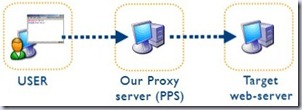Saturday’s reflections
 I’ve moved from Seattle to Boulder for a few days, attending the Heart Rhythm Society conference at the Denver Convention Center. It’s the major show for doctors who treat arrhythmic disorders of the heart, and it’s been fun catching up with the science and with colleagues.
I’ve moved from Seattle to Boulder for a few days, attending the Heart Rhythm Society conference at the Denver Convention Center. It’s the major show for doctors who treat arrhythmic disorders of the heart, and it’s been fun catching up with the science and with colleagues.
The Wall Street Journal greeted me with an editorial column that reinforce my comments on the negative implications that “European Style” carries in the US. Titled “The We’re-Not-Europe” Party, it focuses on lessons of the Greek fiscal crisis:
For Americans, this has been a two-week cram course in what not to be if you hope to have a vibrant future. What was once an unfocused criticism of Mr. Obama and the Democrats, that they are nudging America toward a European-style social-market economy, came to awful life in the panicked, stricken faces of Europe's leadership.
It concludes “the American people (should) avoid and oppose any policy that makes us more like them and less like us.” Yike.
There are things that I like and things that I don’t about living in Europe, but its been, overall, a place that works on a daily basis, a society with better balance in life, an economy that is capable of significant technical and social innovation, even if business interests have to be subordinate to national interests. It isn’t anarchy or decay; it isn’t, really, socialism. Its a pity that the pundits and politicians, stretching to make a point, distort the reality so badly.
Beyond that, a typical week back in the US, noticing the usual differences:
- How few people smoke (or ride bikes)
- How quick evening meals are: half the time of the European repast (and in quantity)
- How shallow the news is, whether print or television
- How big the vegetable sections of the supermarkets are
- How cheap the gas (still) is
- How much noise the Republicans (still) make about nothing (and who, besides the media, is still listening?)
- How people think that the economy has turned the corner (although their own situation hasn’t)
- How car navigation systems are still a novelty (even though the amount of driving is vastly greater)
- How people are increasingly concluding that the stock market is rigged (especially after the 1000 point drop and rebound, a sense that oops, you weren’t supposed to see that…)
- How much people dislike BP and distrust what it’s doing to cap the week (although a poll shows that Goldman Sachs is still only half as popular as BP)
Labels: US Perspectives






